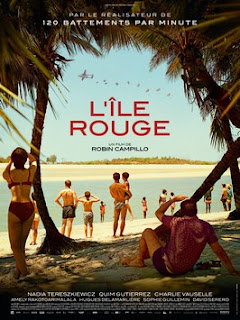EL SUR ***1/2
IDEA: In northern Spain in the late 1950s, a girl learns about her father's mysterious past as she comes of age.
BLURB: The first image of El Sur, like so many of the film’s chiaroscuro-carved tableaux, is illuminated only gradually, whispering from the darkness. The source is the light of dawn filling a girl’s bedroom, but it could just as well be a projector’s lightbulb firing up, or the waxing flame that casts shadows on the wall of Plato’s cave. The stylized images conjured by Erice and Alcaine self-reflexively entwine memory and cinema, calling back to some irrecoverable past that only exists in hazy representations. For the young Estrella, those things beyond the threshold of legibility become imagos; particularly, a father who seems to possess magic, and the mysterious South from which he hails that seemingly holds the key to family unity and self-actualization. But any imaginary is built on an opposition of presence and absence, something Estrella comes to understand in the way her father fetishizes a famous movie star as a proxy for a lost love. Rifts personal and political define the narrative and poetics of El Sur, whose post-Civil War setting rumbles with generational tensions between children and their patriarchs, nations and their leaders. Estrella is older by the end of the film, but in many ways she’s as she was at the beginning: a girl at literal and metaphorical dawn, grasping toward a light that will never fully chase away the dark.

